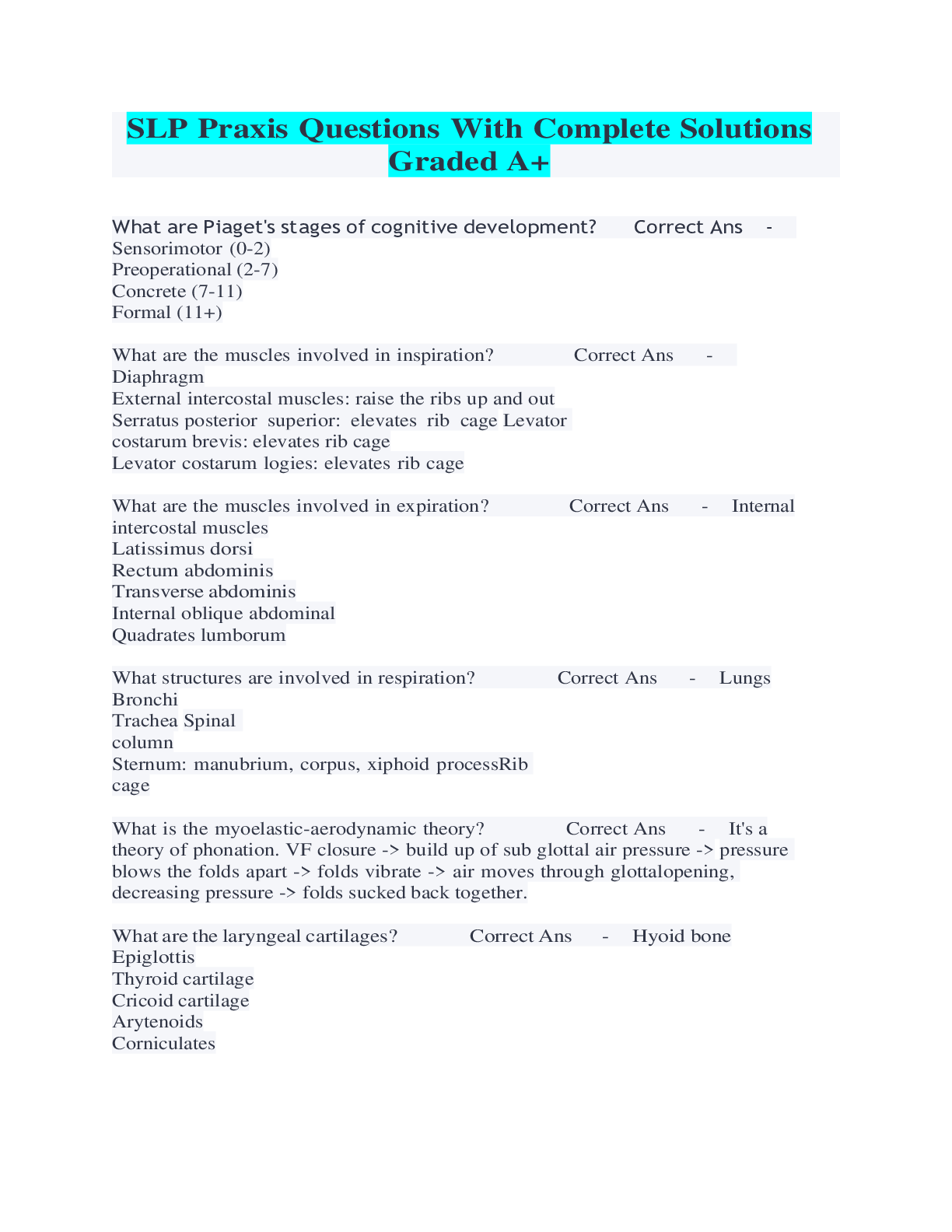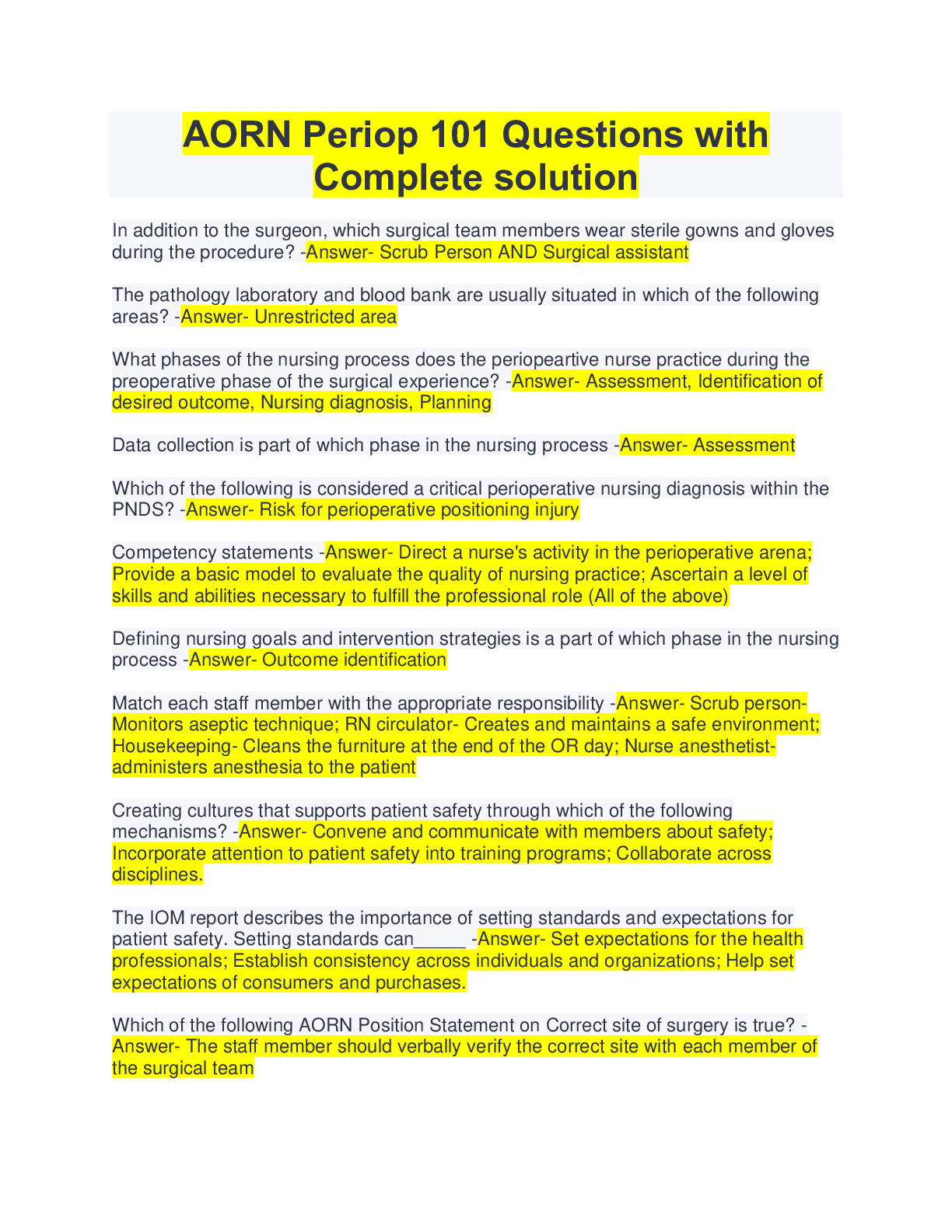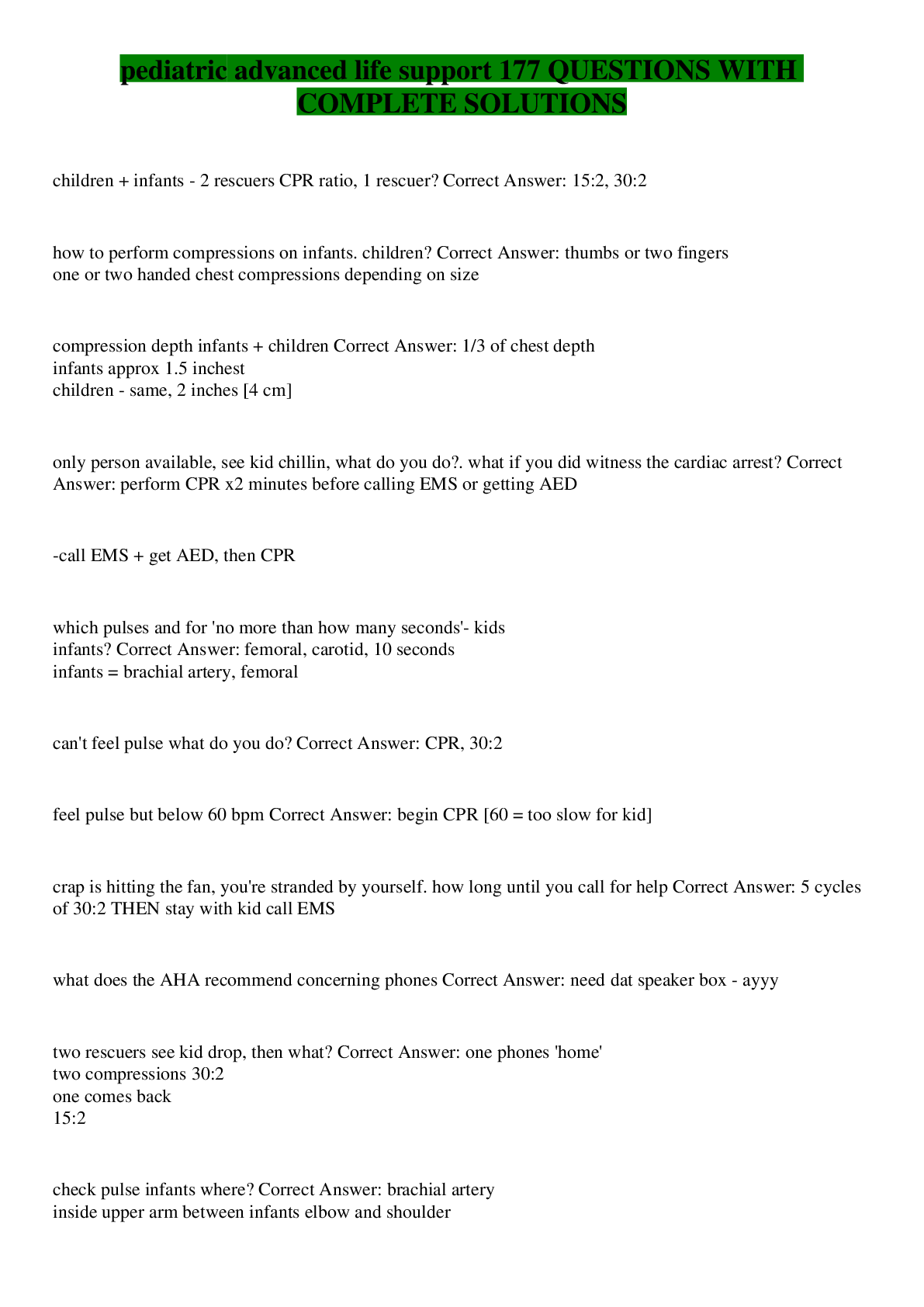Health Care > STUDY GUIDE > De-escalation study questions with complete solutions 2022 (All)
De-escalation study questions with complete solutions 2022
Document Content and Description Below
Definition of crisis Crisis is a situation in which: A. The individual presents an immediate danger to self or others; B. The individual's mental or physical health is at risk of serious deteriorat... ion; or C. An individual believes that he or she presents an immediate danger to self or others, or that his or her mental or physical health is at risk of serious deterioration. Keys to de-escalation/communication techniques 1. Keys to communication A. You will need to build trust and rapport to obtain information quickly and accurately. Use these three helping skills. B. Empathy, is the ability to accurately describe the emotional state of another. Don't confuse this with sympathy. C. Sensitivity, comes from your understanding and commitment to staying with the person until the present crisis is resolved. D. Utilize objectivity and subjectivity in your communications. i. Use objectivity to make accurate evaluations. ii. Use subjectivity to understand the pain the person in crisis is going through. iii. Utilize active listening techniques. Promote communication A. Listening i. Listening, is one of the most important skills used during a crisis de-escalation. Listening effectively establishes trust and allows you to understand information more thoroughly. ii. To be effective listener remember to: A. Recognize verbal and nonverbal cues. B. Avoid distractions. C. Note any extra emphasis the person in crisis places on words or phrases. D. NOtice speech patterns and recurring themes. B. Clarification, it is important to remember that any statement not understood needs to be clarified. Nothing should ever be assumed. Some techniques to aid in clarifying are: i. Rephrase in a way that encourages the person to clarify. ii. Repeat key words. This focuses attention on particular thoughts and feelings. iii. Admit confusion, or misunderstanding of a statement and ask for clarification. iv. Ask "open ended", questions to obtain understanding. C. Dealing with silence; if faced with silence during a crisis situation, do not let the silence become discomforting, use it as time to observe the person's behavior. Respond effectively A. Handle the feelings of the person in crisis with care and concern and treat the person's feelings as legitimate. B. It is essential not to judge, give advice, or belittle person during crisis. C. Maintain personal space, this is a crucial element for effective communication, and is different for every individual in crisis. D. Observe the person's reaction to proximity to create a comfortable space for effective communication. E. Maintain an appropriate distance to insure individual safety. Basic communication guidelines 1. Use short, and clear direct sentences. A. Long, involved explanations are difficult for people with mental illness to handle. B. They will tune you out. 2. Keep the content of communication simple A. Cover only one topic at a time. B. Give only one direction at a time. C. Be as concrete as possible. 3. Keep the "stimulation level" as low as possible. A. High stimulation levels are painfully defeating for anyone who has suffered a mental breakdown. 4. If the person appears withdrawn and uncommunicative, allow time for them to acclimate to situation and re-approach. 5. Instructions and directions will often have to be repeated. Be patient. 6. Be pleasant and firm. Make sure your boundaries are specific and clear. 7. To increase the desired results, praise all cooperative behavior. 8. Practice active listening. Use phrases like: A. Sounds like your feelings (angry, upset, and sad) - Is that right? B. You're pretty (angry, upset, and sad) right now, don't you? C. I want to make sure that i understand what you are saying - are you telling me that you are...? 9. Remember a person in crisis may be further agitated by intervention, even when necessary. 10. Nonverbal communications speak volumes. A cooperative and open stance may be more effective. Concepts of de-escalation paradox. A. The difference between a confrontation in an inmate with mental illness and without is the need to be non-confrontational. 1. Such a requirement to, in effect, shift gears is completely opposed to the way officers are routinely expected to control conflict. 2. When responding to an emergency, officers are forced to make split second decisions about their safety and the safety of others. 3. Those decisions are often based upon command and control tactics. 4. The same command techniques used to gain control of a traditional inmate can escalate an encounter with an inmate with a mental illness into violence. 5. An inmate with compromised coping capacity who is experiencing a crisis may have unpredictable behavior which can be mistaken for non-compliance with commands. B. Safety is compromised any time a jailer goes "hands-on" with a person. Jailers use non-confrontational, verbal de-escalation skills to talk them down versus take them down. 1. A non-confrontational approach gives you time to think, act, and understand the situation immediately in front of you. 2. Reasons why command and control approaches can escalate a situation due to mental impairments. A. Hallucinations, where a subject is hearing or seeing things that are not there, can make subject's compliance to your commands difficult. B. Paranoid thoughts cause mistrust of others, including officers. C. Fostering a de-escalation mindset. 1. Taking a less physical, authoritative, controlling approach to an individual with mental impairments may increase the probability of a safe resolution [Show More]
Last updated: 1 year ago
Preview 1 out of 3 pages

Reviews( 0 )
Document information
Connected school, study & course
About the document
Uploaded On
Sep 16, 2022
Number of pages
3
Written in
Additional information
This document has been written for:
Uploaded
Sep 16, 2022
Downloads
0
Views
42

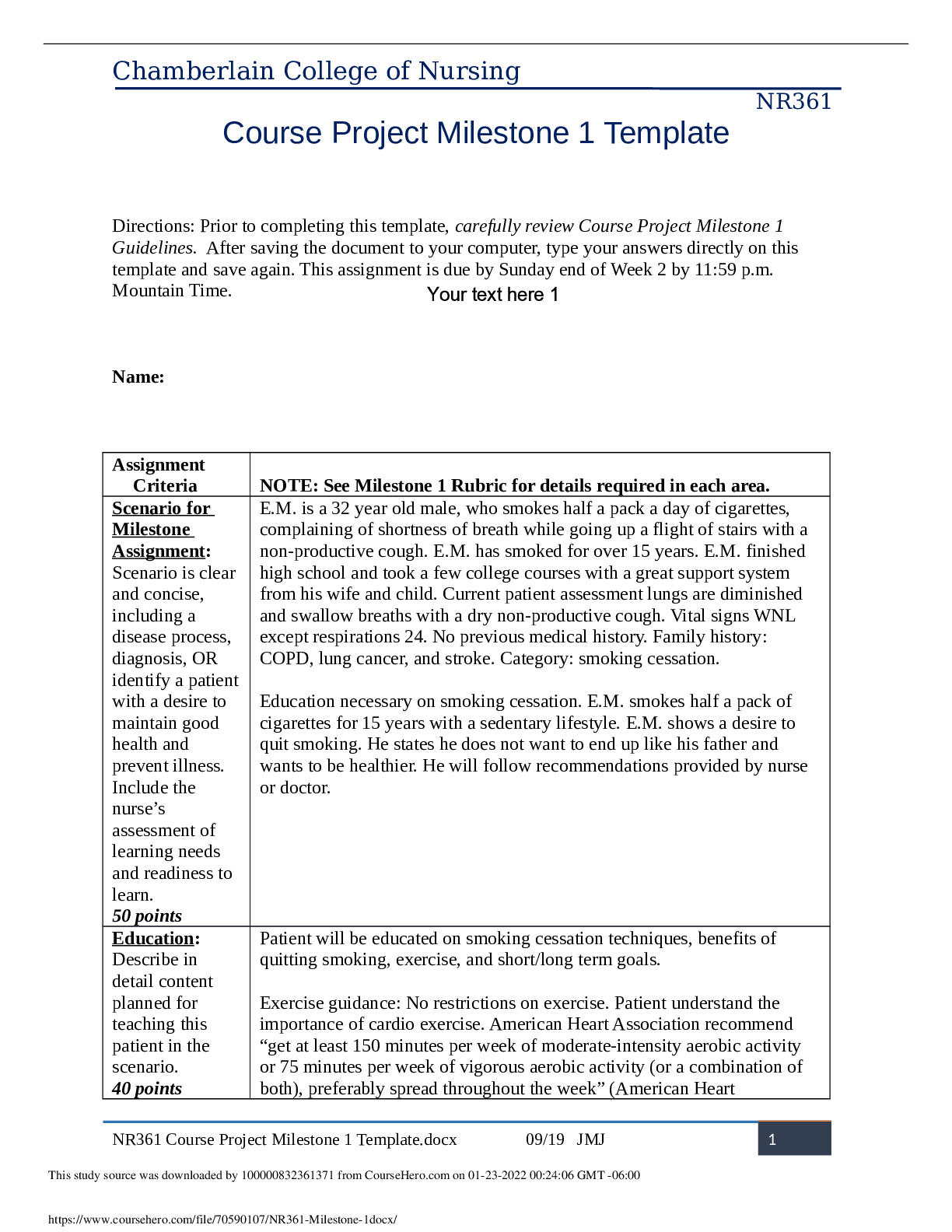


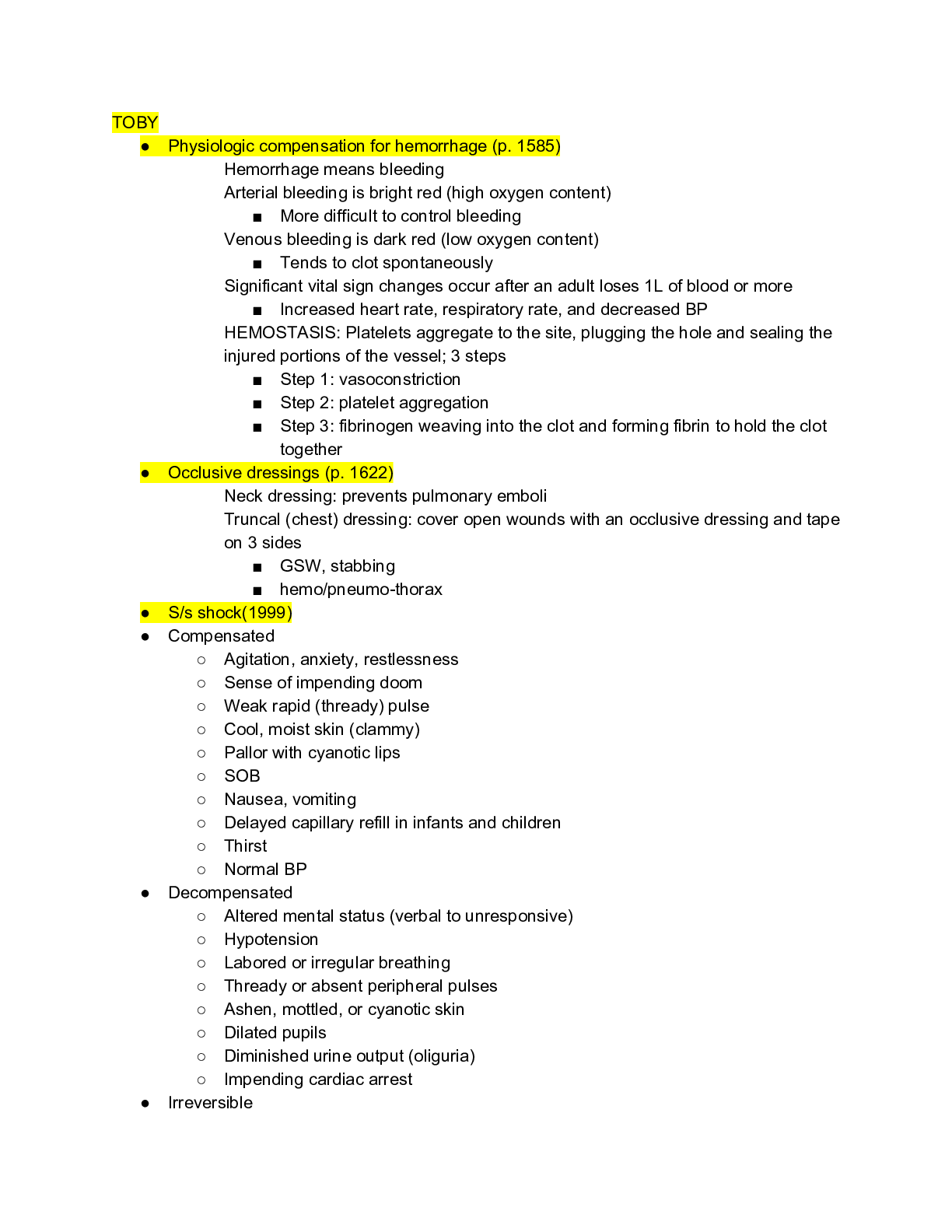

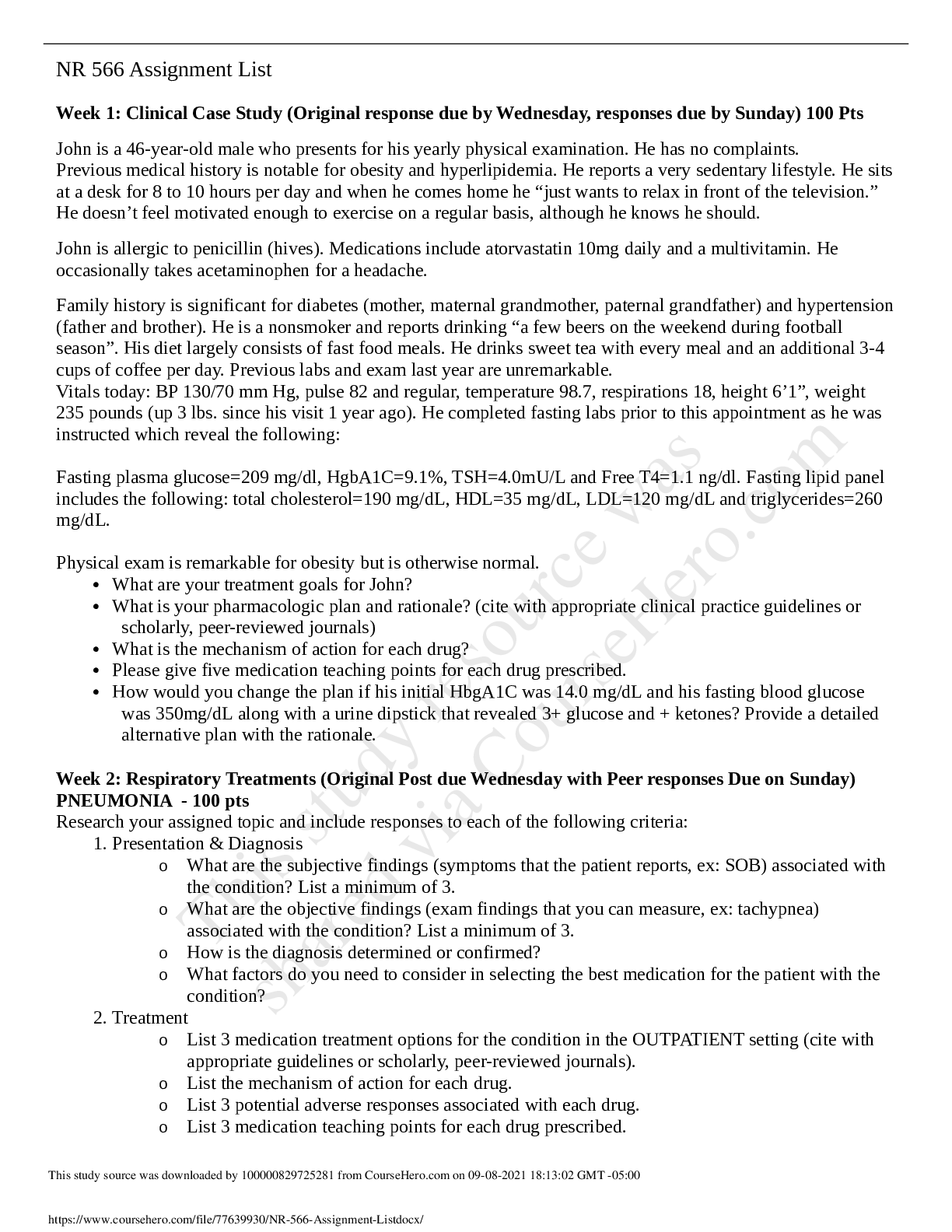

.png)
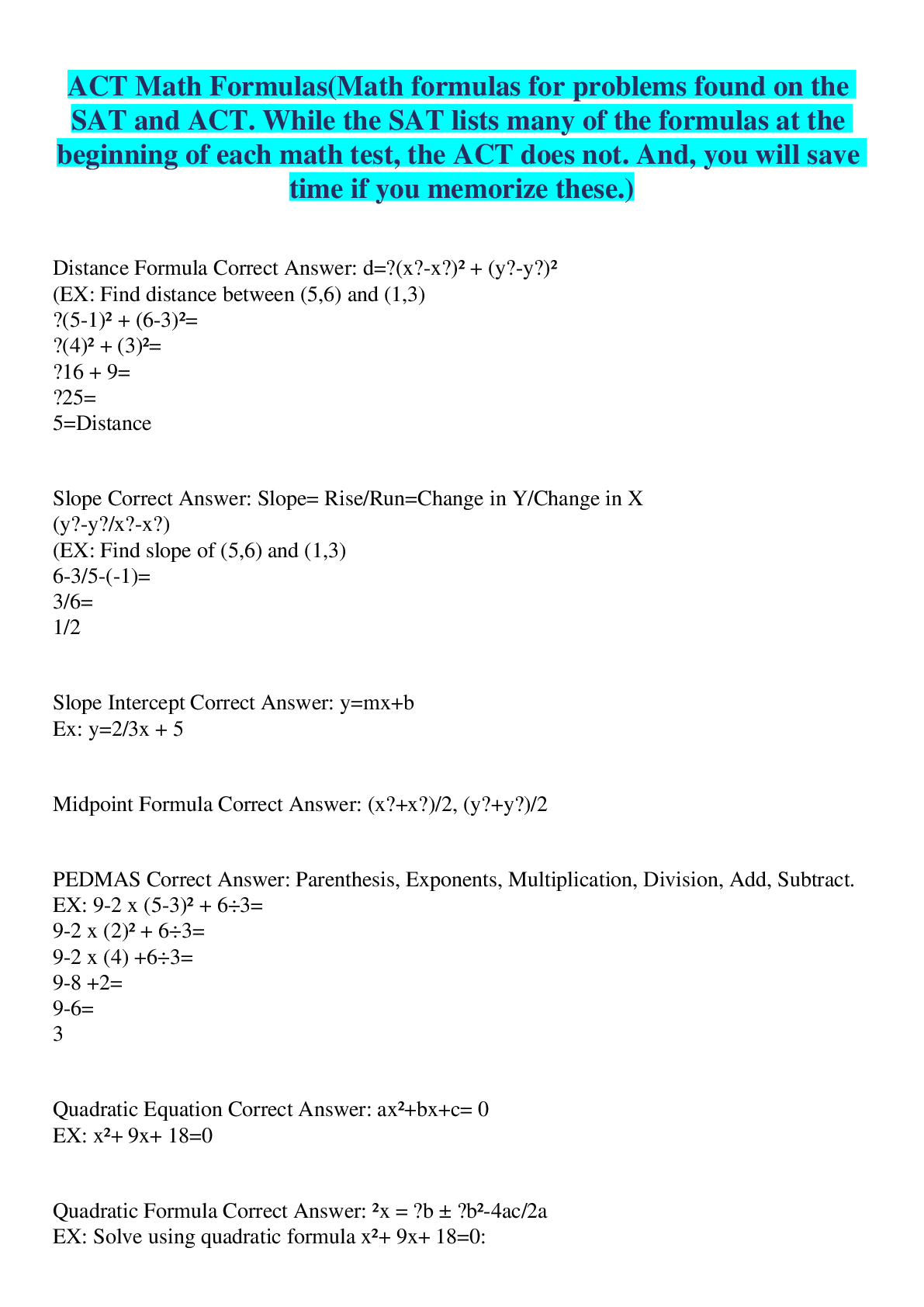
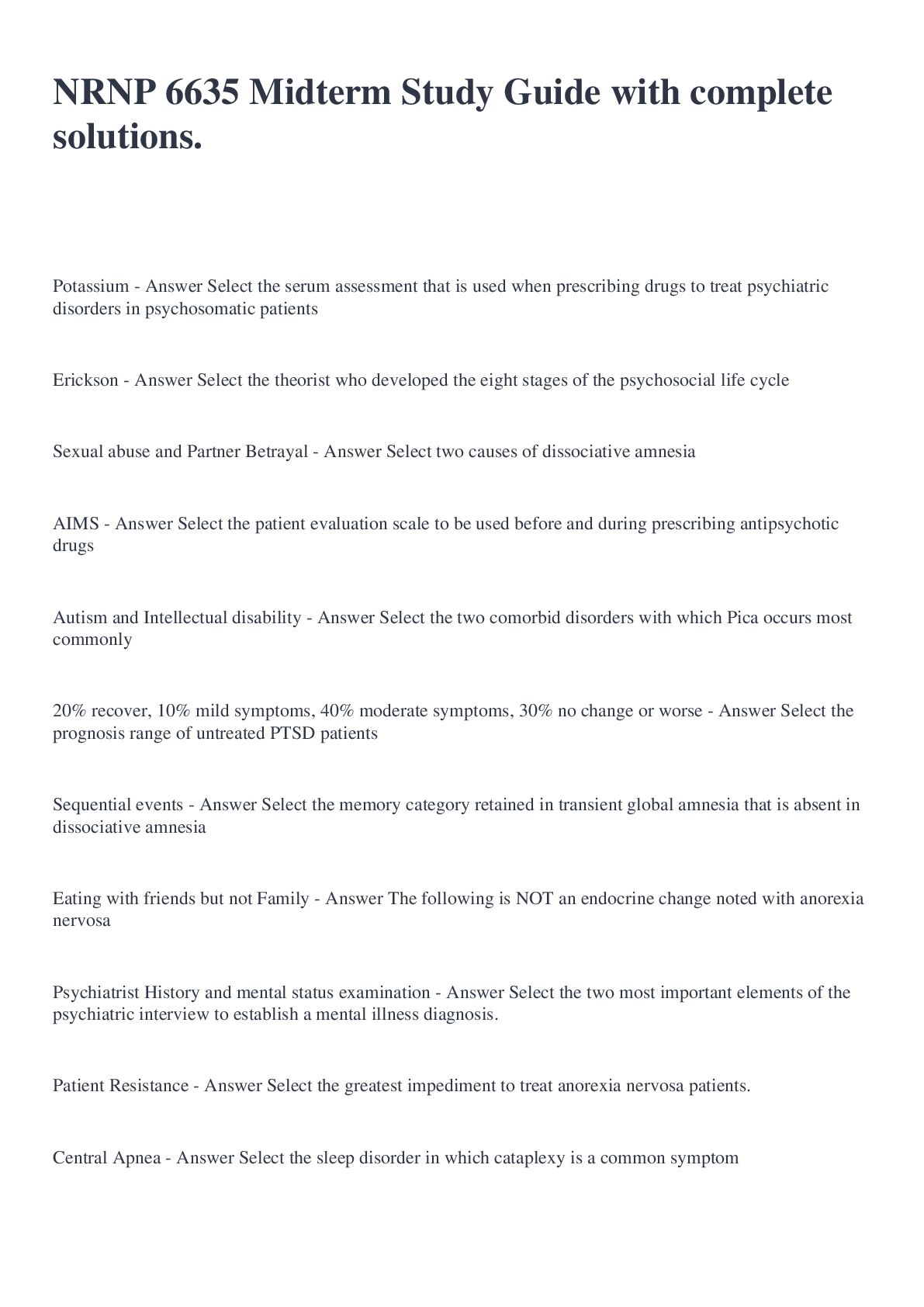
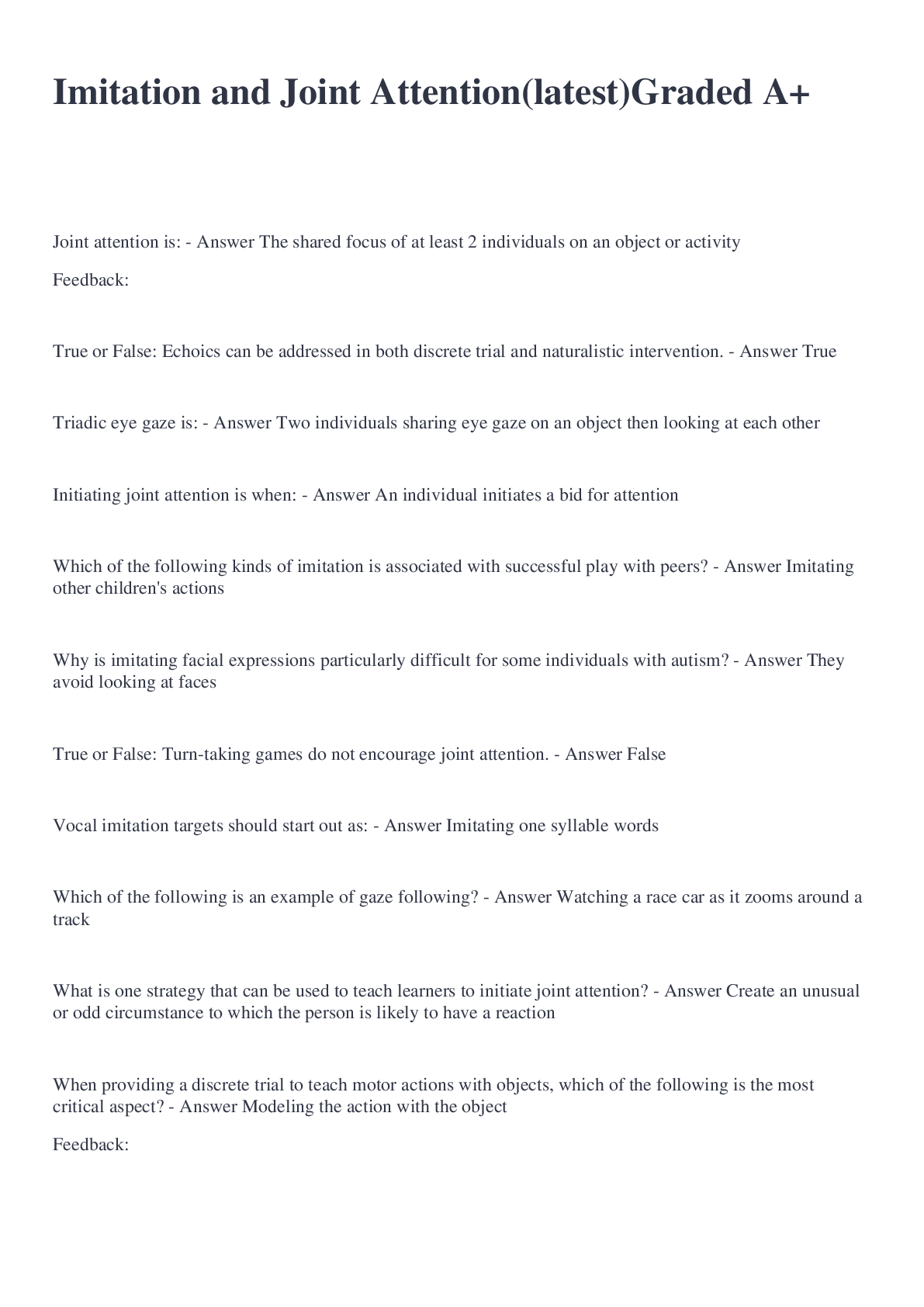
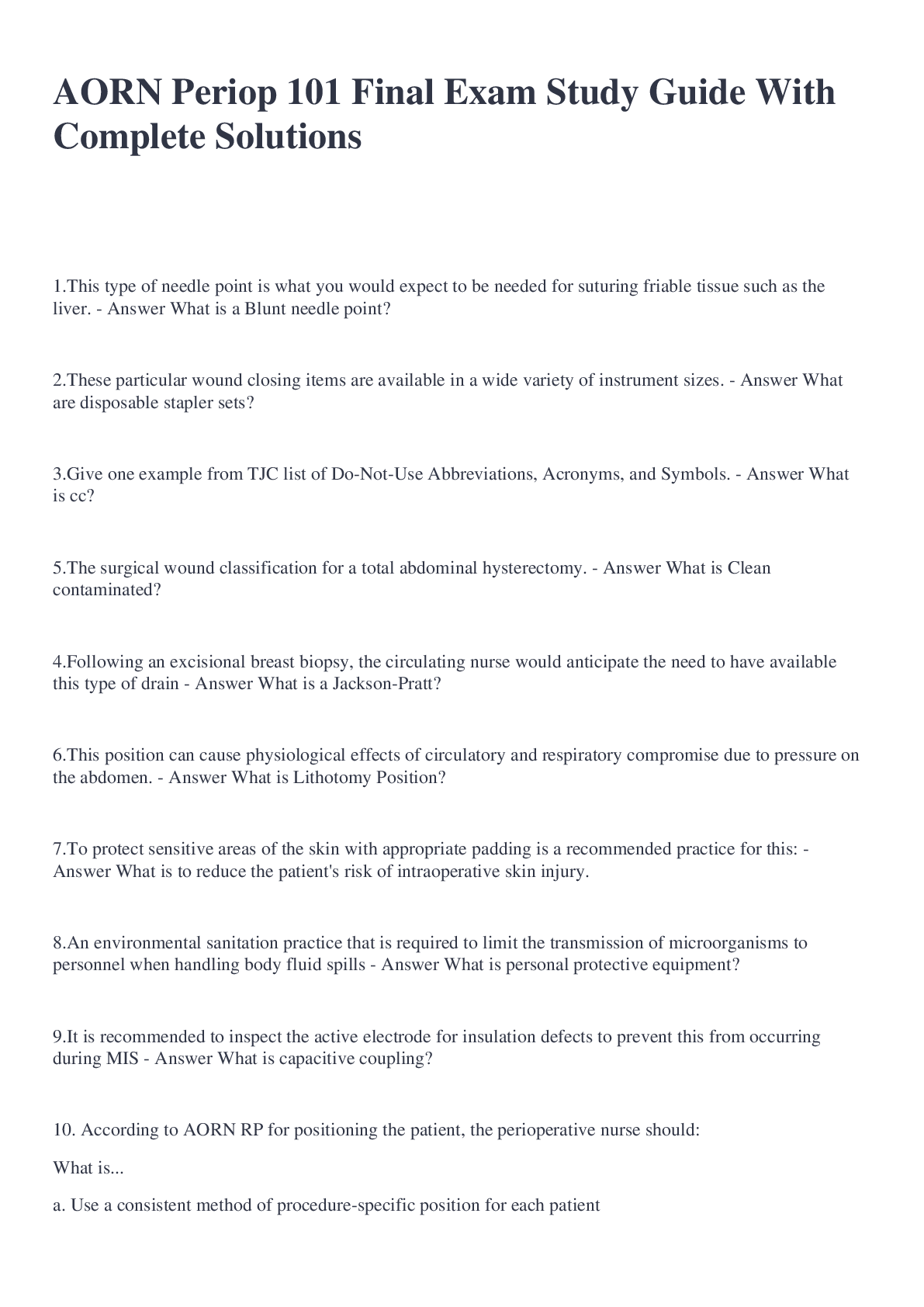
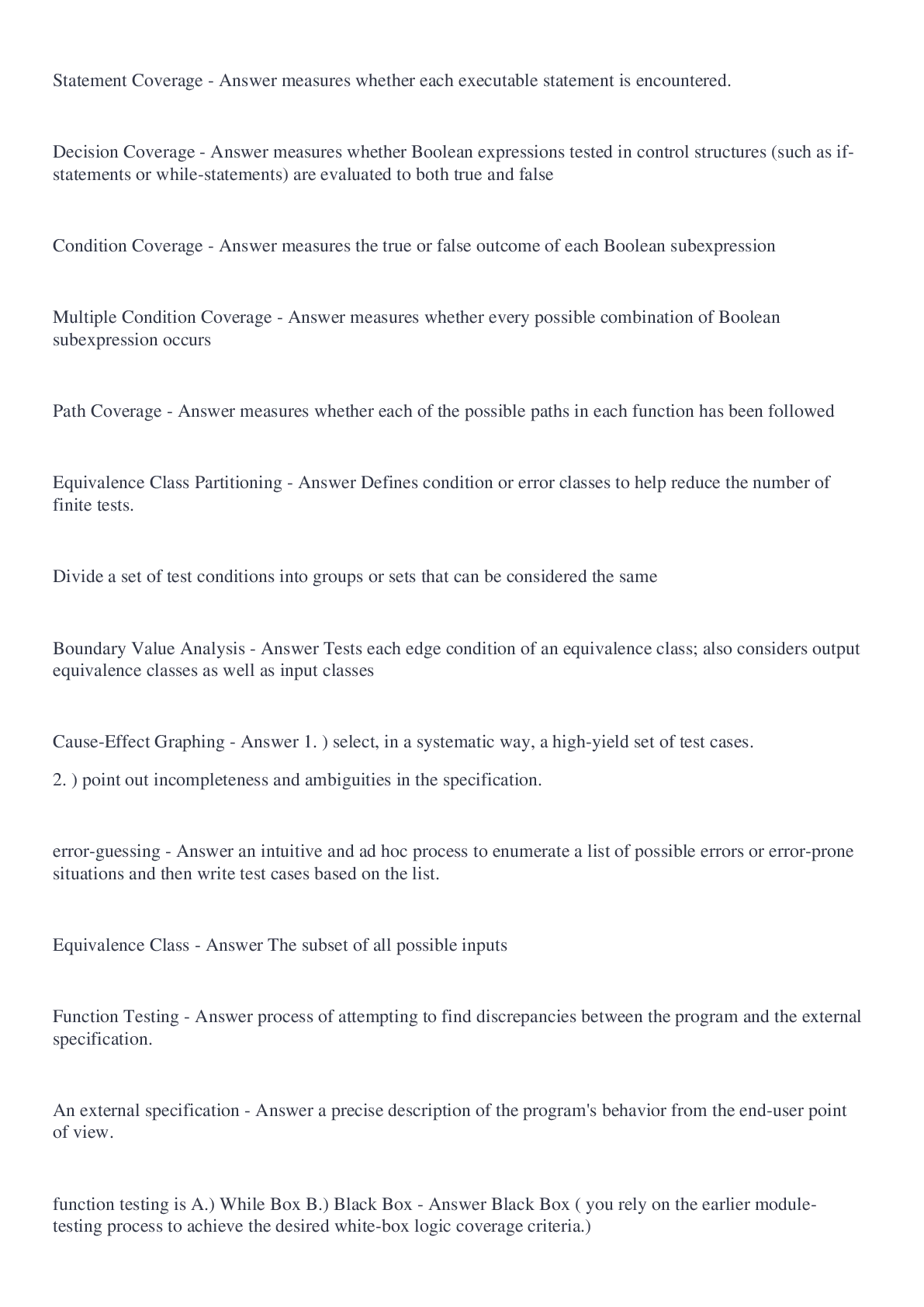
With Correct Answers!.png)
Solved 100% Correct!!.png)
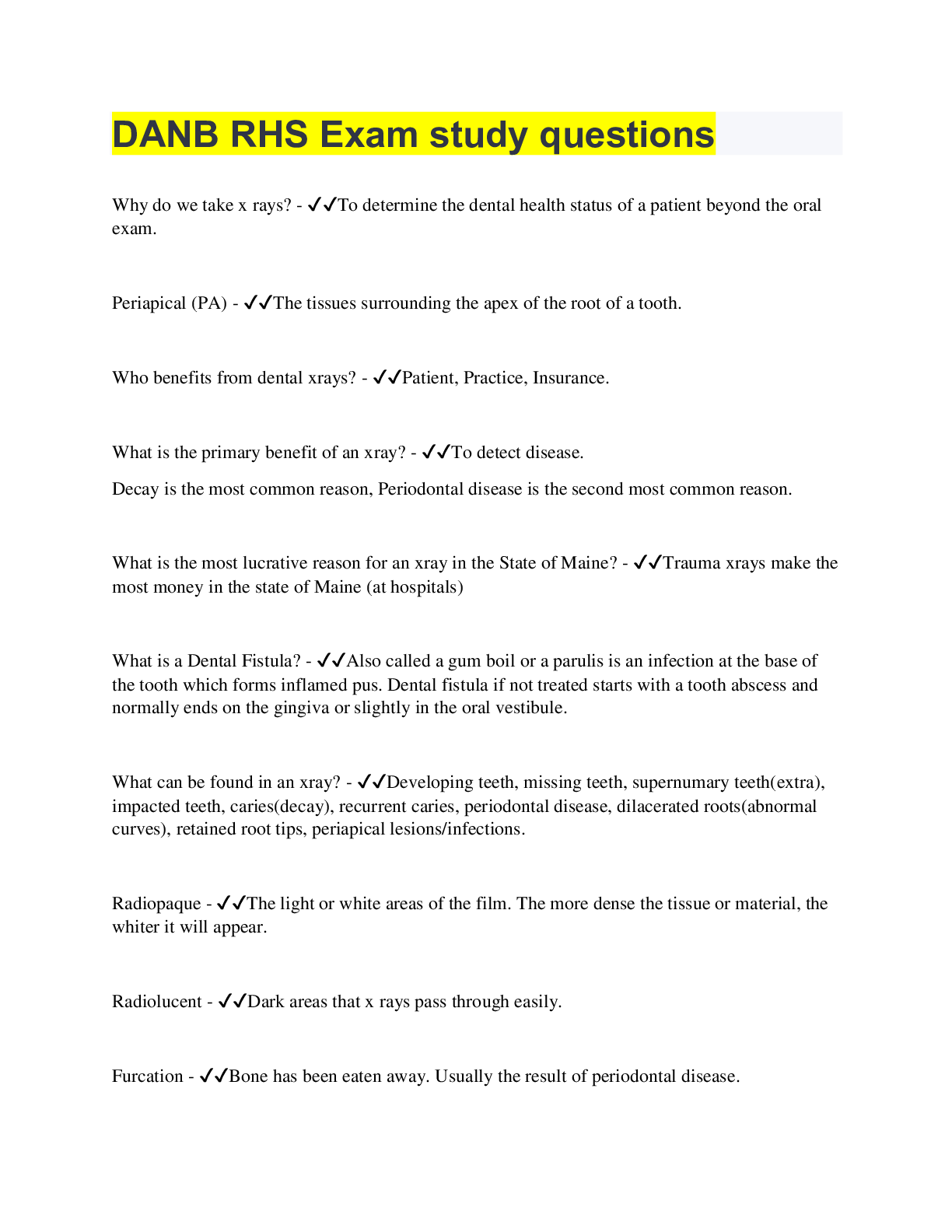
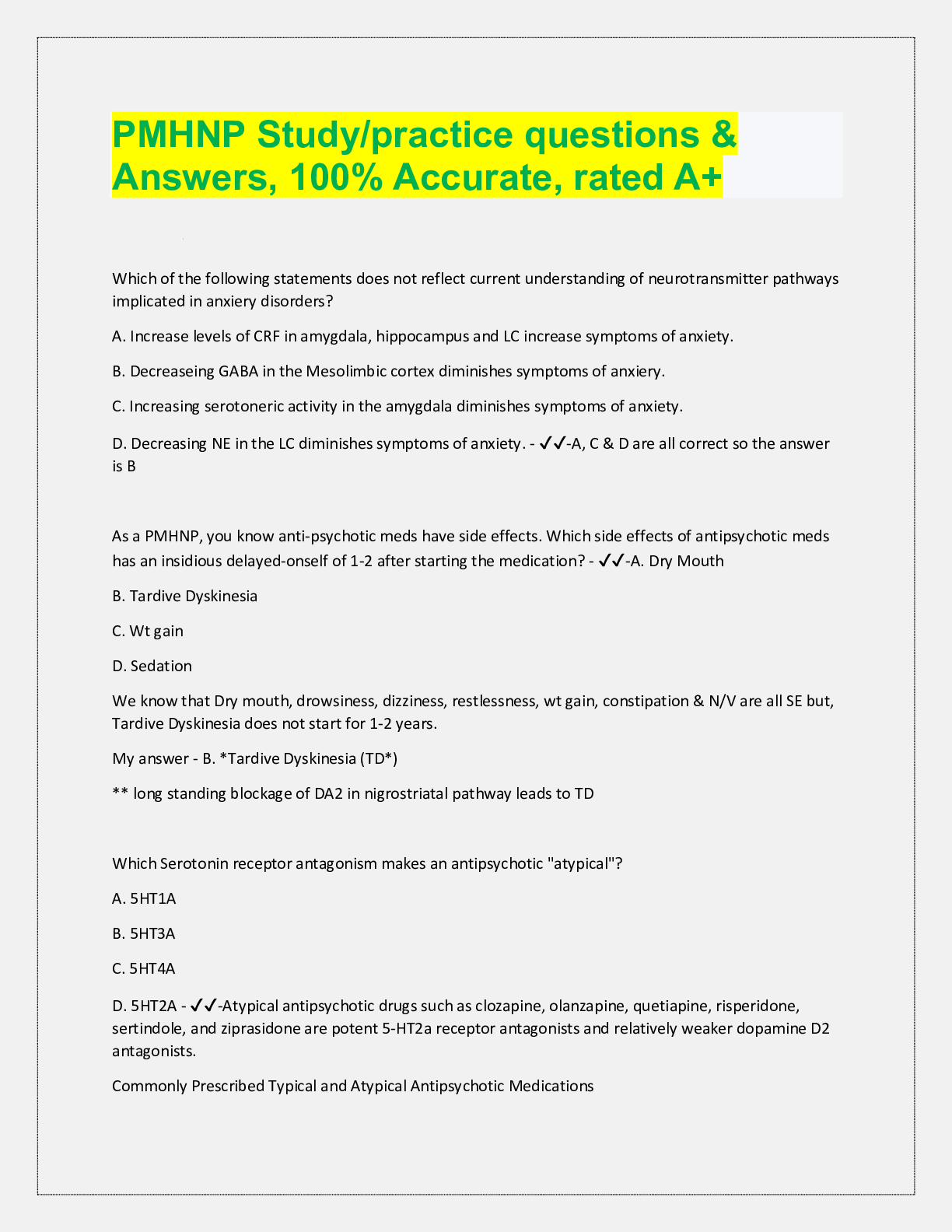
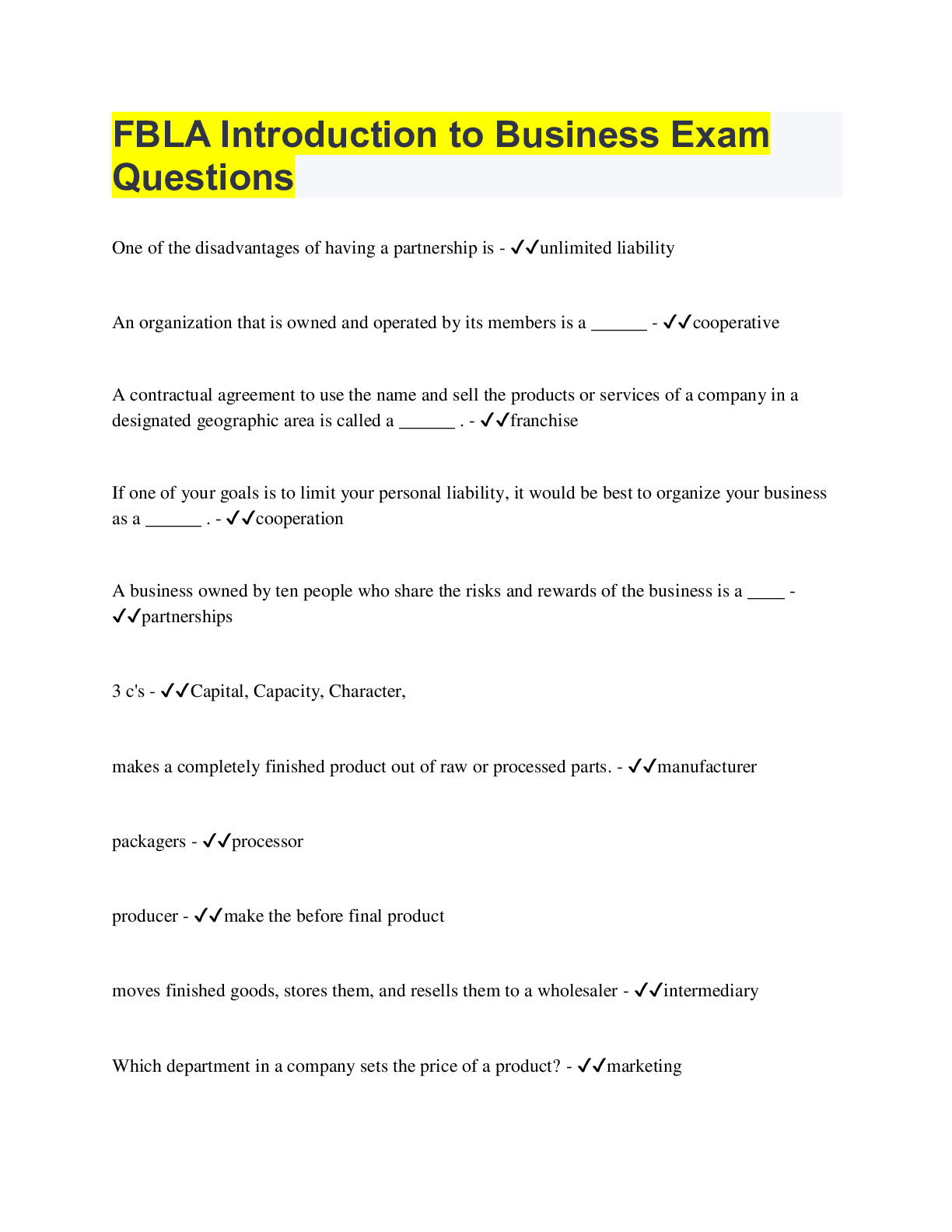
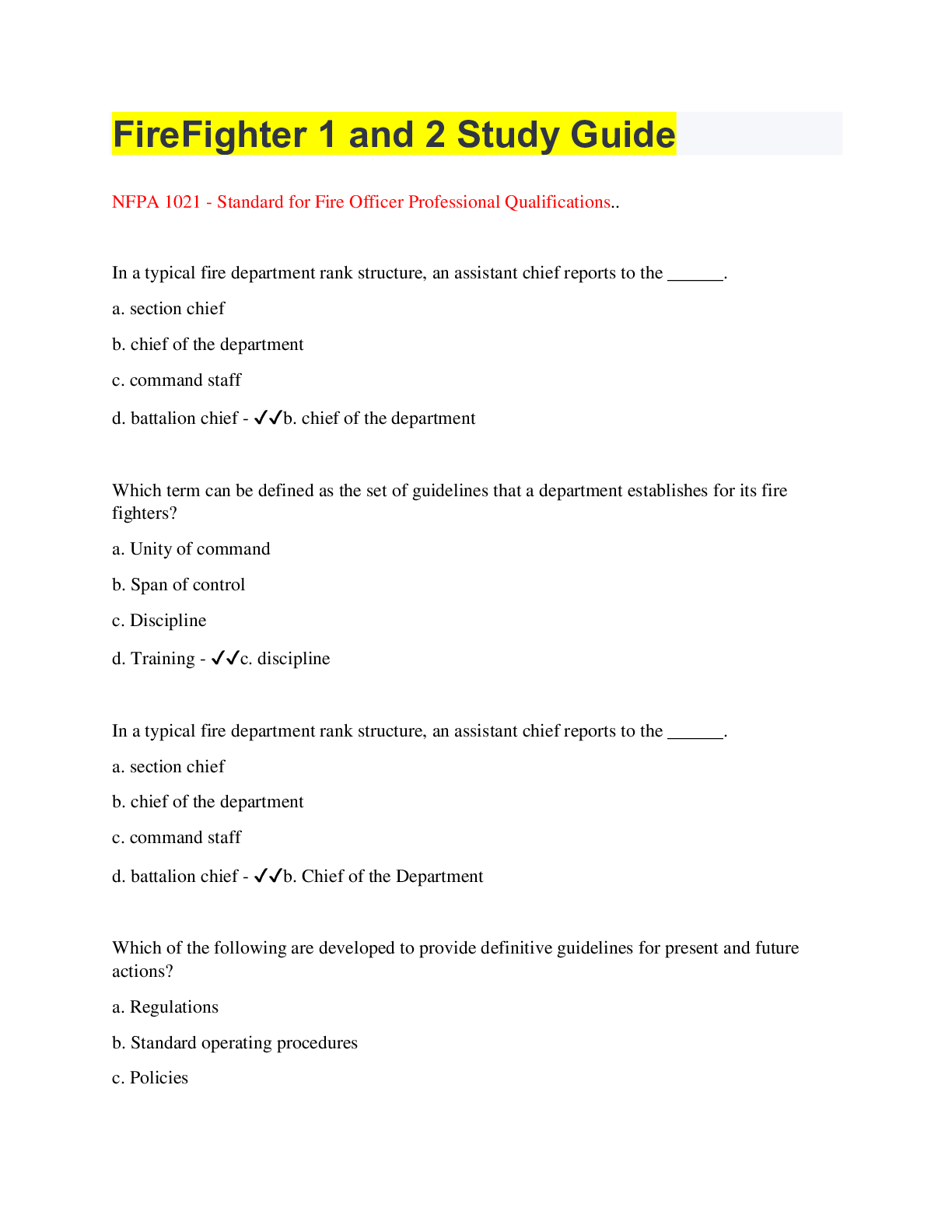
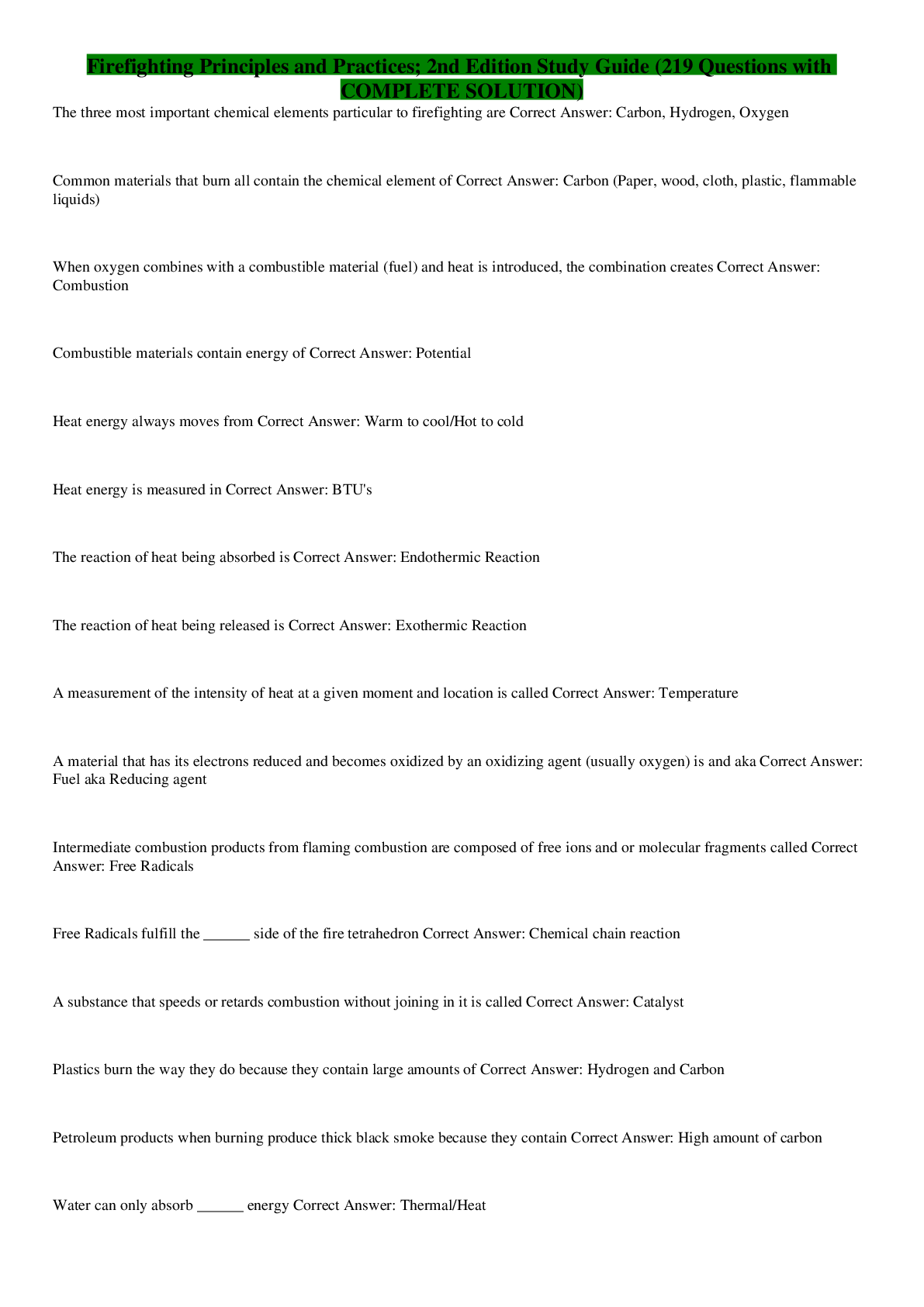
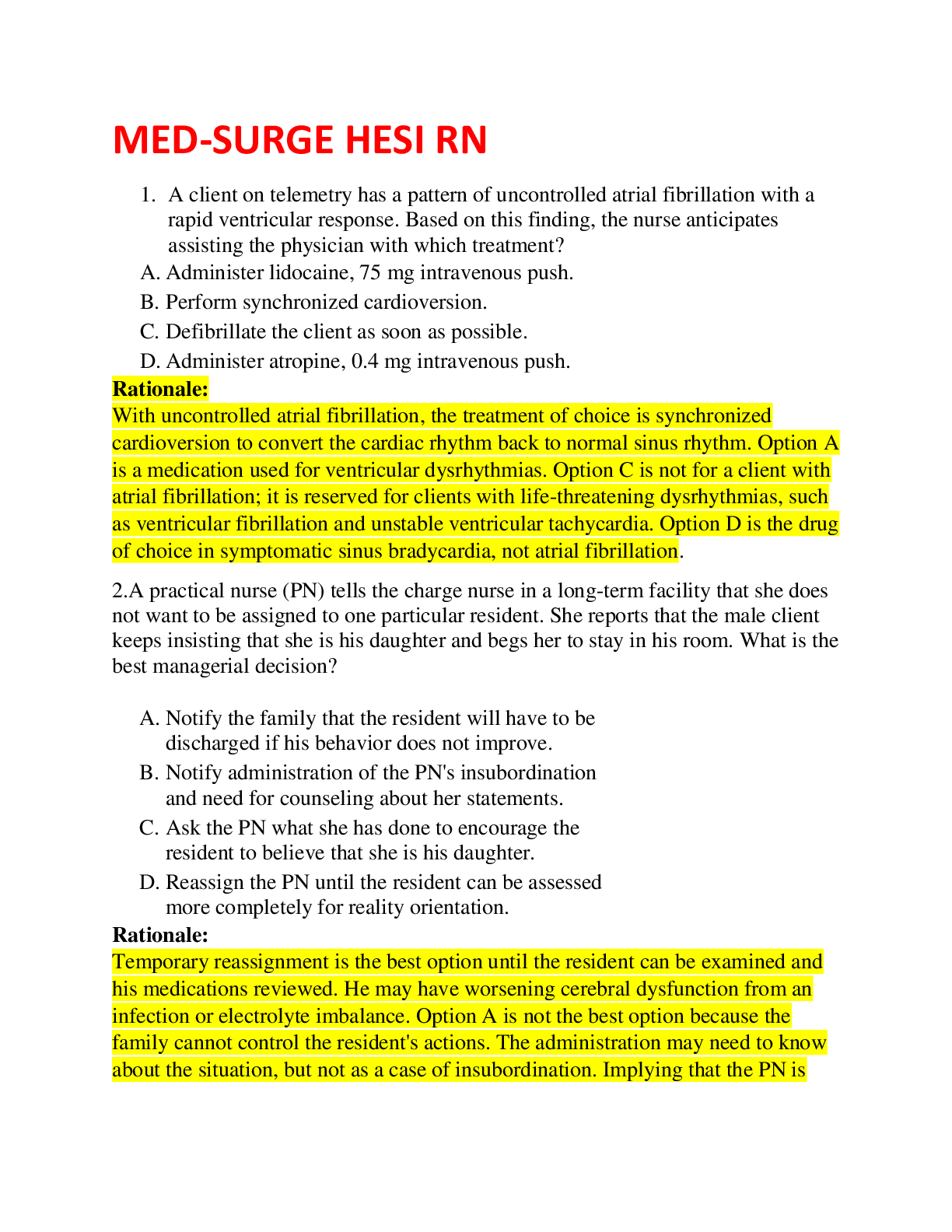
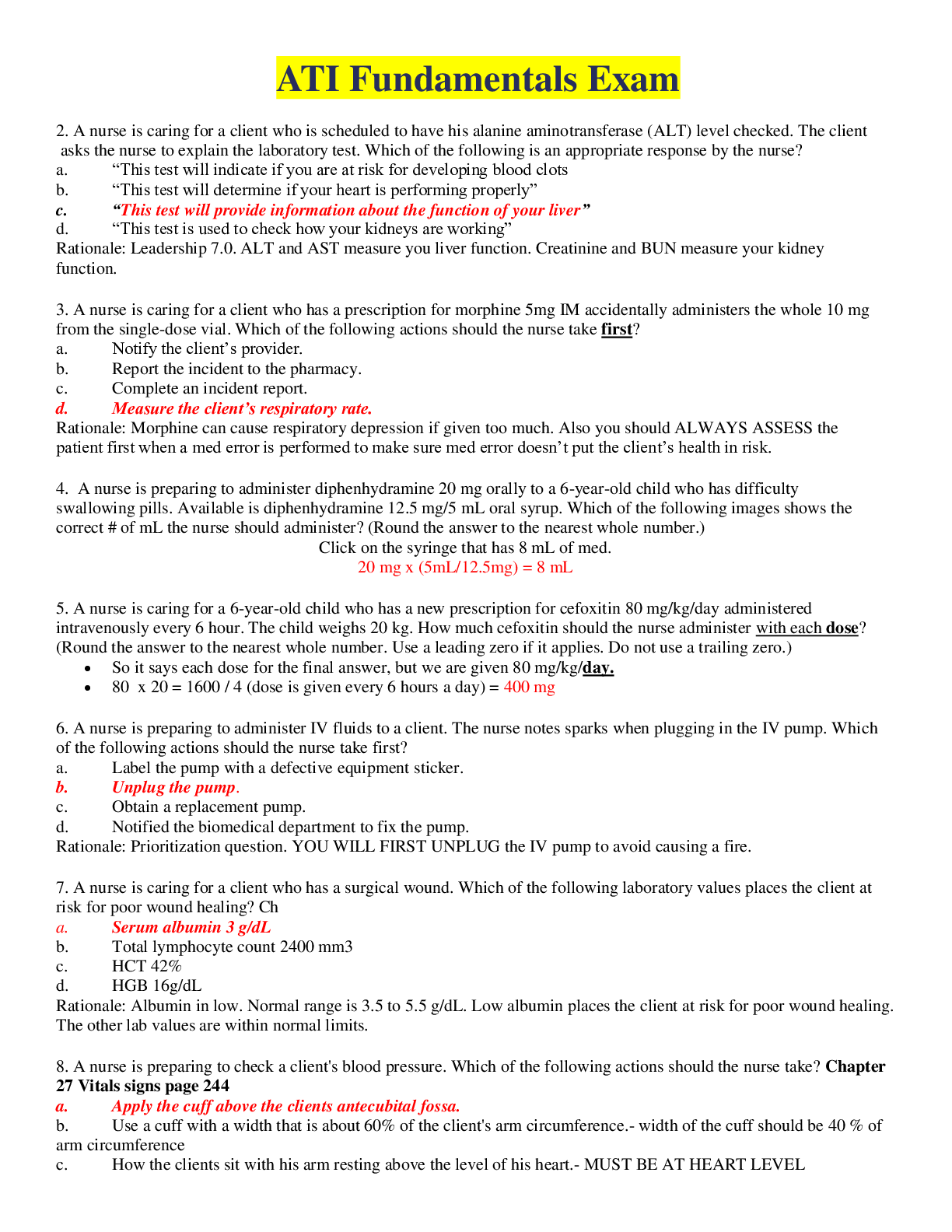
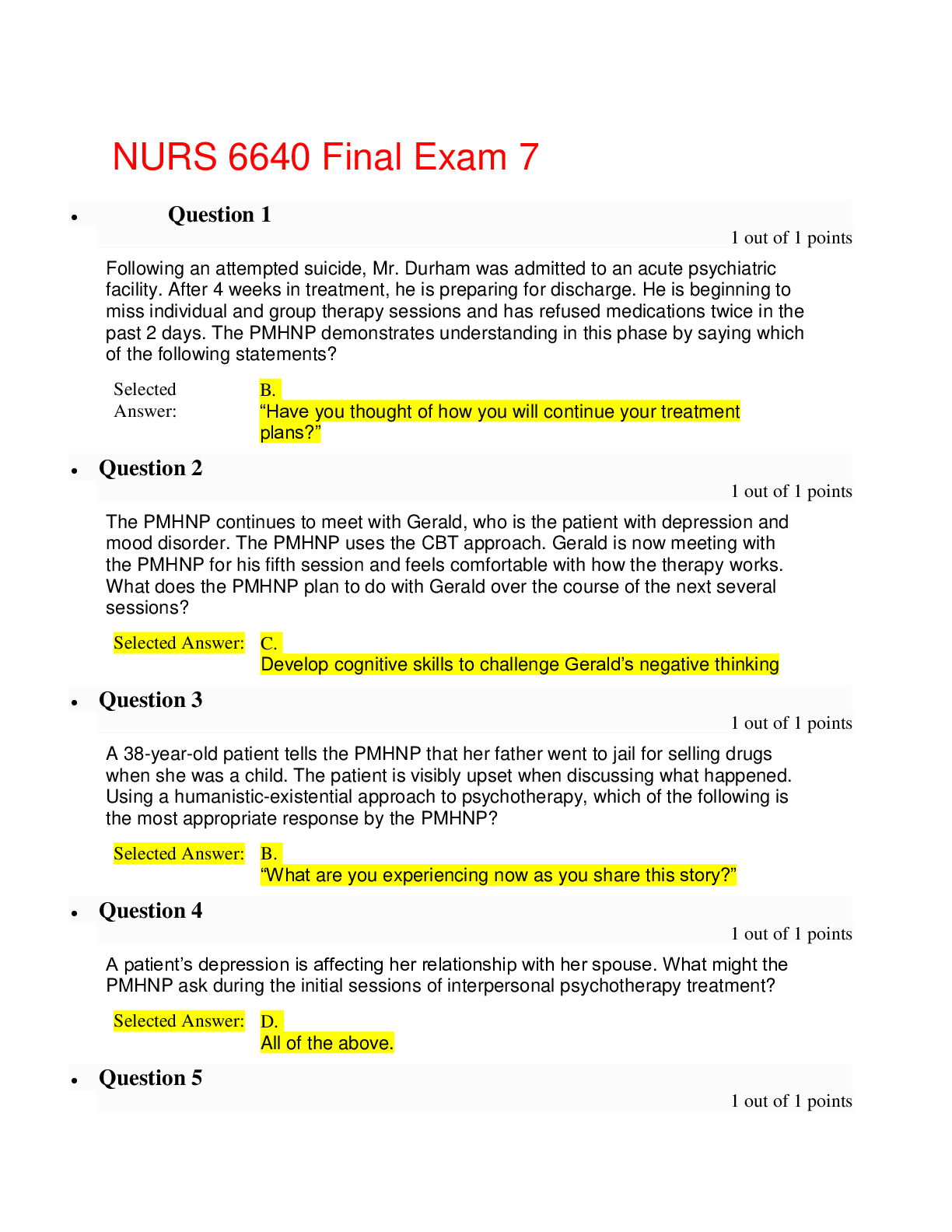
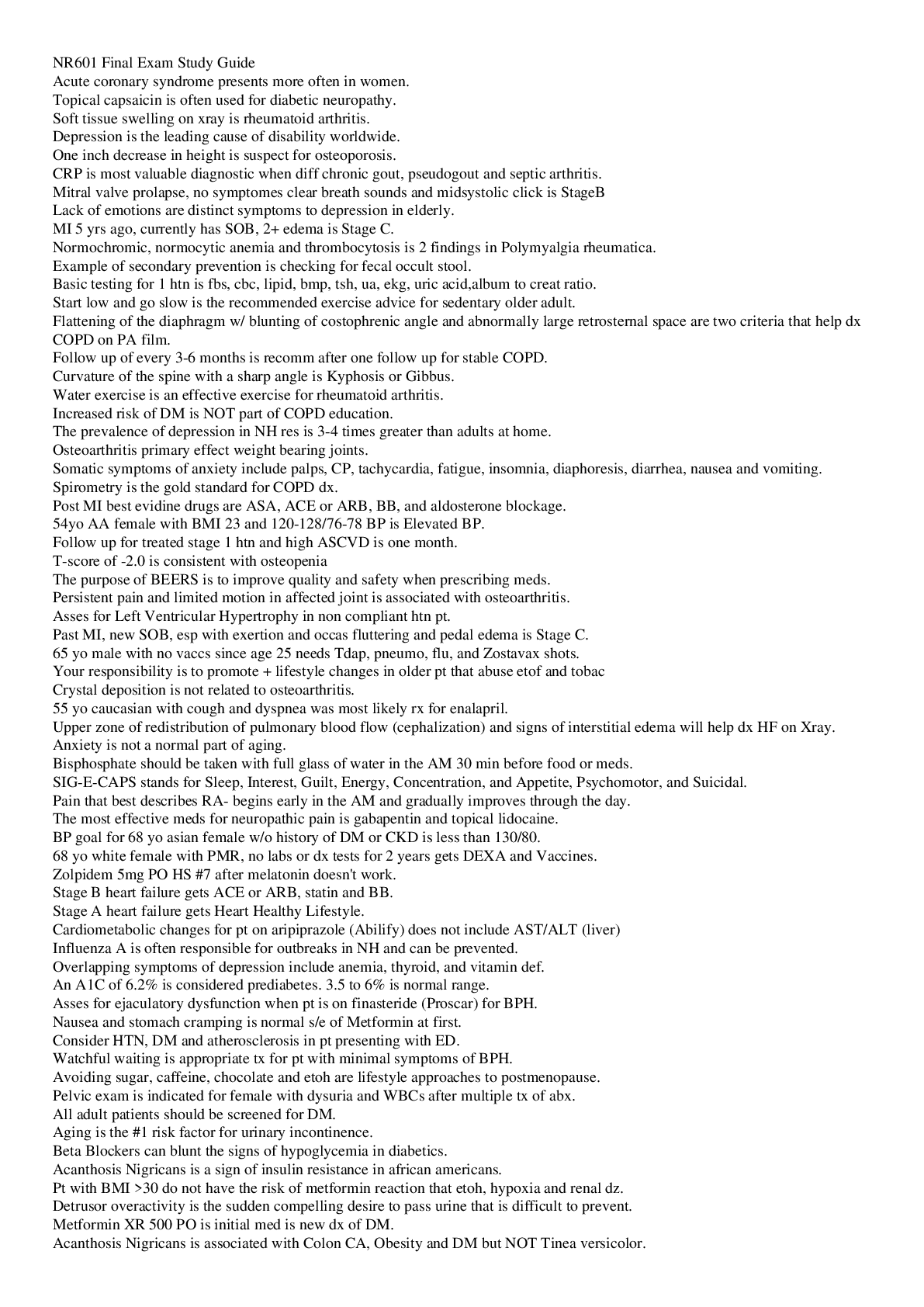

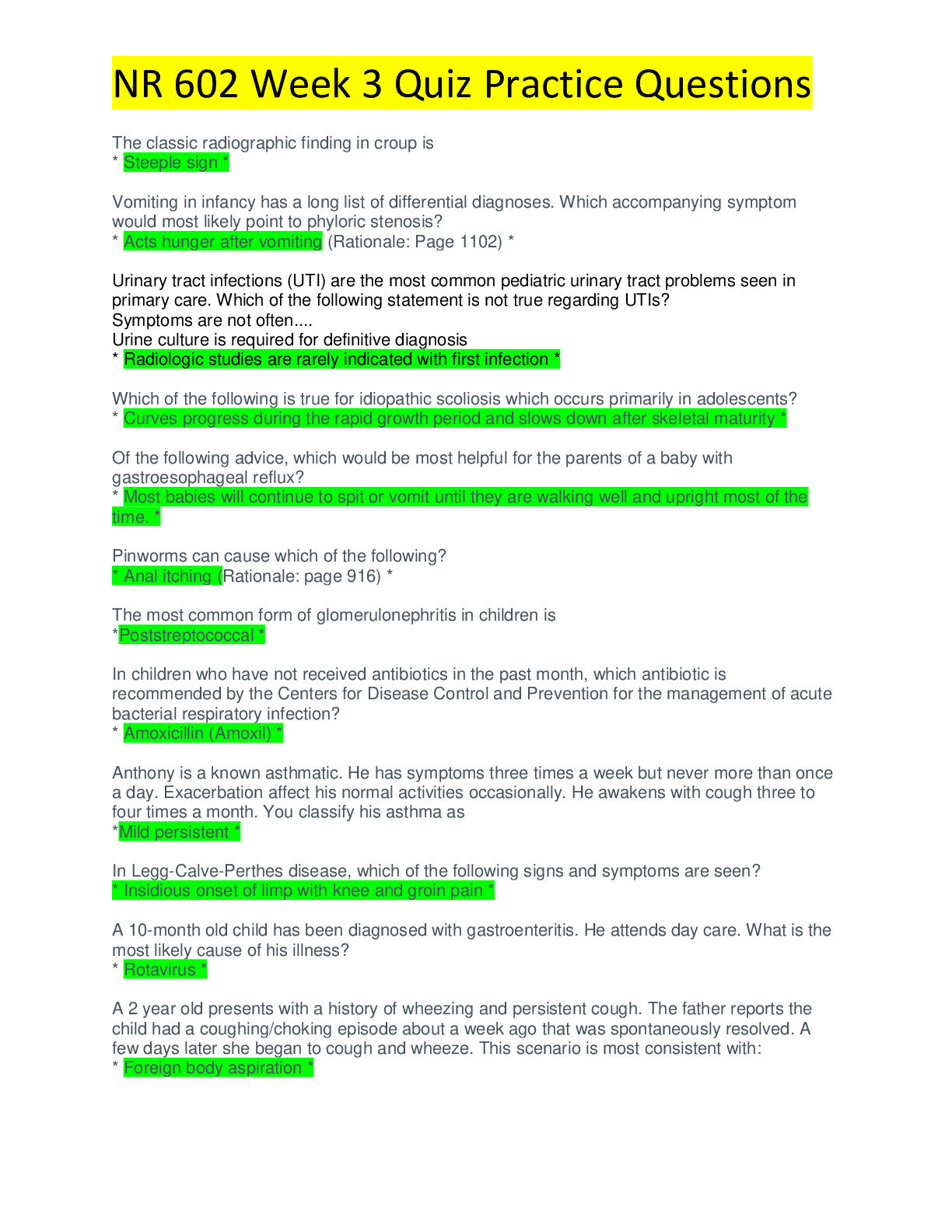
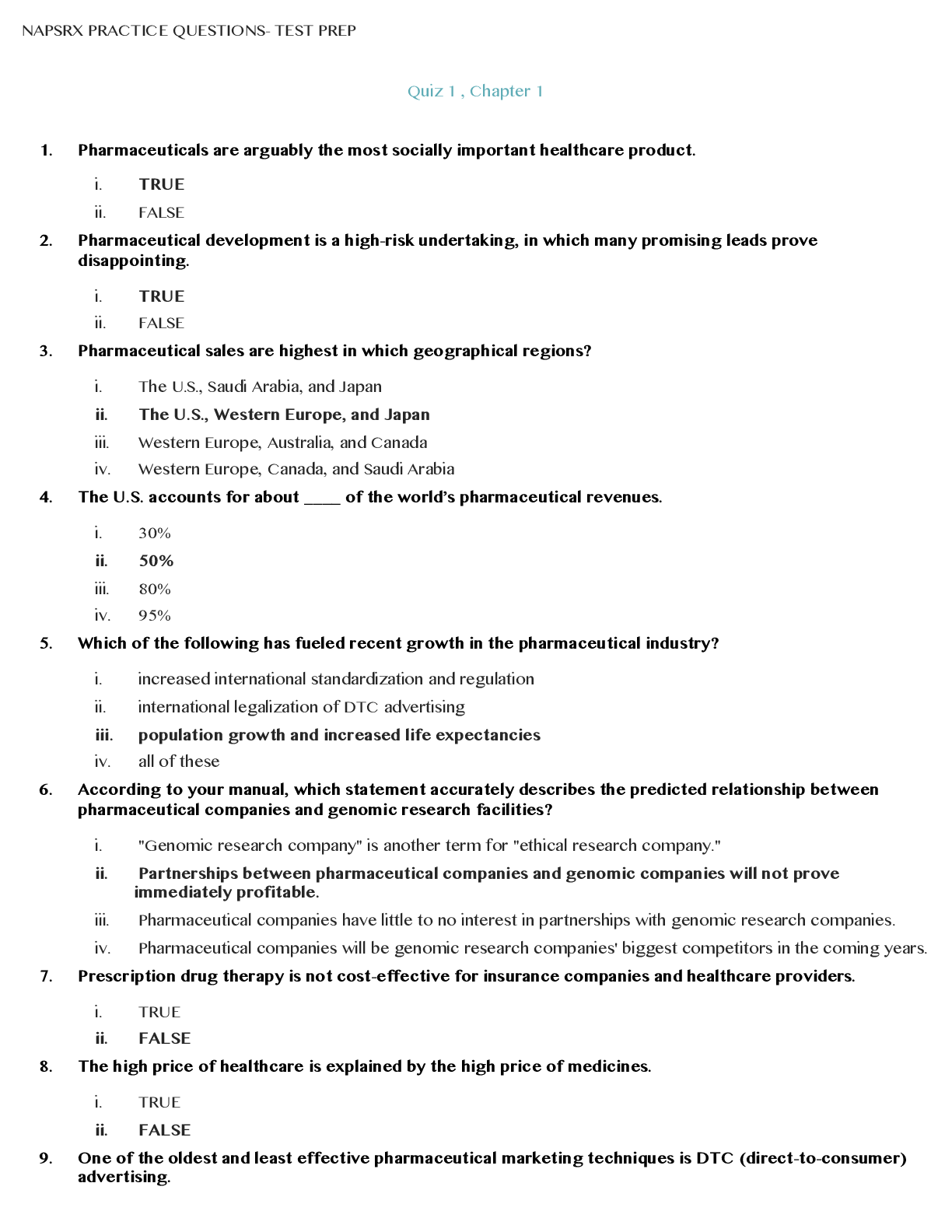
.png)

